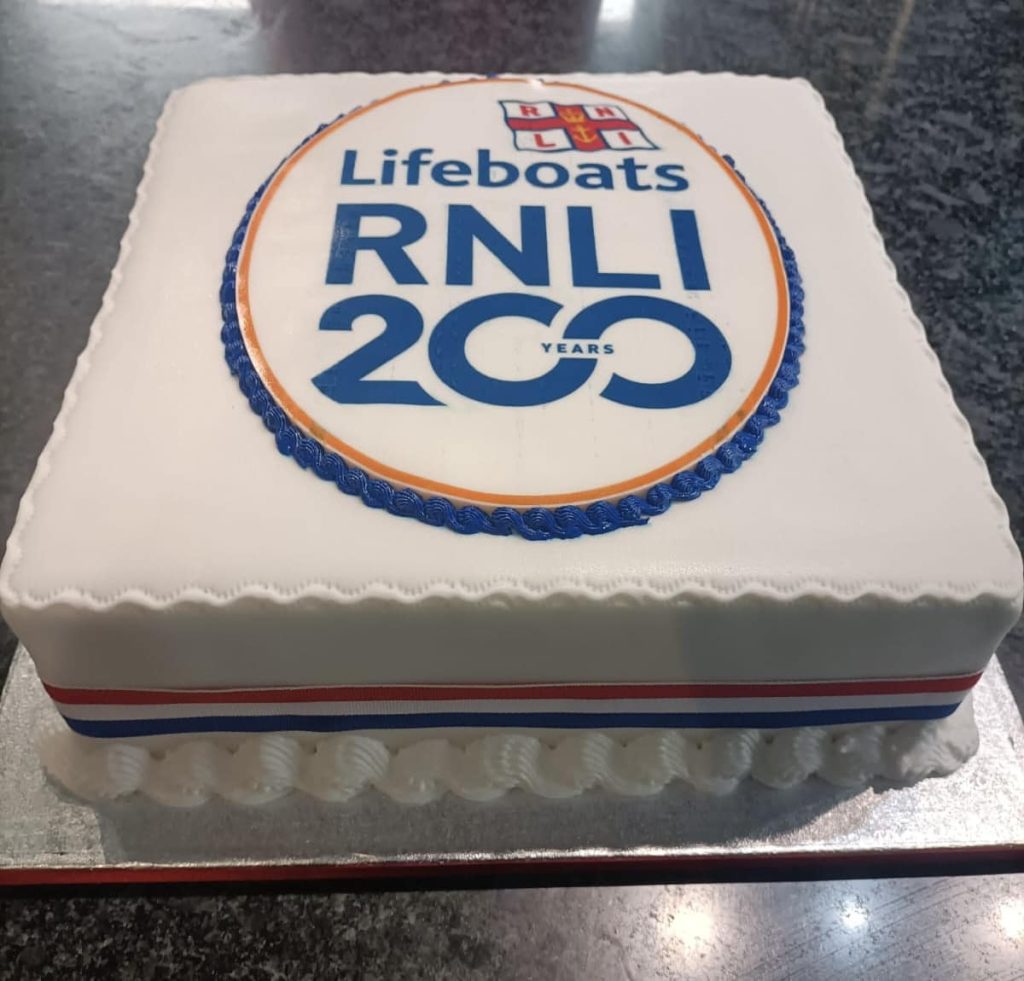On Monday 4 March 2024 the Royal National Lifeboat Institution (RNLI) will celebrate 200 years of saving lives at sea – thanks to volunteers, like those at Portpatrick lifeboat station, giving their time to save others, all funded by voluntary public donations.
On the day the charity turns 200, the RNLI is revealing its lifeboat crews and lifeguards have saved an incredible 146,277 lives during its two centuries of lifesaving.
Portpatrick RNLI Lifeboat Station was founded in 1877 and in that time its crews have launched the lifeboats 777 times and saved 306 lives.
Crews from Portpatrick have been honoured with five awards for gallantry, including a bronze medal for a launch to one of the worst peacetime disasters involving a British merchant vessel.
A Service of Thanksgiving to mark 200 years of the RNLI will take place at Westminster Abbey in London on 4 March. It will be attended by representatives from RNLI lifesaving communities around the UK and Ireland, including volunteer crew members Kim Stevenson and Marc Trafford from Portpatrick.
Ian Marshall, Lifeboat Operations Manager, Portpatrick Lifeboat Station says: ‘The RNLI has been saving lives for 200 years; and Kim and Marc are a great example of the latest generation carrying on the lifesaving work that has been carried out by many generations before us. It’s a real family affair as Kim’s mother Betty Stevenson has been a volunteer in Portpatrick RNLI gift shop for more than 30 years, and Kim and Marc’s son Jack, who is 12, supports us at all our fundraising events and already has plans to join the crew as soon as he is old enough.
We will celebrate here in Portpatrick by inviting crew, fundraisers and shop volunteers past and present to a drinks reception on 4 March as we mark this impressive 200 year anniversary.’
Founded in a London tavern on 4 March 1824 following an appeal from Sir William Hillary, who lived on the Isle of Man and witnessed many shipwrecks, the RNLI has continued saving lives at sea throughout the tests of its history, including tragic disasters, funding challenges and two World Wars.
Two centuries have seen vast developments in the lifeboats and kit used by the charity’s lifesavers – from the early oar-powered vessels to today’s technology-packed boats, which are now built in-house by the charity; and from the rudimentary cork lifejackets of the 1850s to the full protective kit each crew member is now issued with.
The RNLI’s lifesaving reach and remit has also developed over the course of 200 years. Today, it operates 238 lifeboat stations around the UK and Ireland, including four on the River Thames, and has seasonal lifeguards on over 240 lifeguarded beaches around the UK. It designs and builds its own lifeboats and runs domestic and international water safety programmes.
While much has changed in 200 years, two things have remained the same – the charity’s dependence on volunteers, who give their time and commitment to save others, and the voluntary contributions from the public which have funded the service for the past two centuries.
RNLI Chief Executive, Mark Dowie, says:
‘It has been an honour and a privilege to be at the helm of the RNLI for the past five years, and to see the charity reach its bicentenary. For a charity to have survived 200 years based on the time and commitment of volunteers, and the sheer generosity of the public donating to fund it, is truly remarkable. It is through the courage and dedication of its incredible people that the RNLI has survived the tests of time, including tragic losses, funding challenges, two World Wars and, more recently, a global pandemic.
‘Today, we mark the bicentenary of the RNLI. We remember the achievements and commitment of all those who have been part of the RNLI family over the past two centuries; we celebrate the world-class lifesaving service we provide today, based on our 200 years of learning, expertise and innovation, and we hope to inspire future generations of lifesavers and supporters who will take the RNLI into its next century and beyond.
‘I am immensely grateful to everyone who is involved with the charity – our volunteers, supporters and staff. This is our watch and it is our role to keep our charity safe and secure so it can continue to save lives into the future, as we strive in our vision to save every one.’
Throughout its bicentenary year, the charity is running events and activities to remember its important history and celebrate the modern lifesaving service it is today, while hoping to inspire generations of future lifesavers and supporters.
For further information about the RNLI’s 200th anniversary, visit RNLI.org/200.





